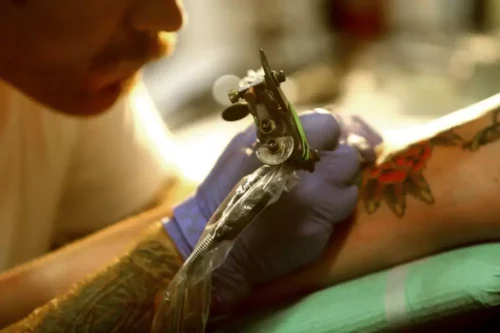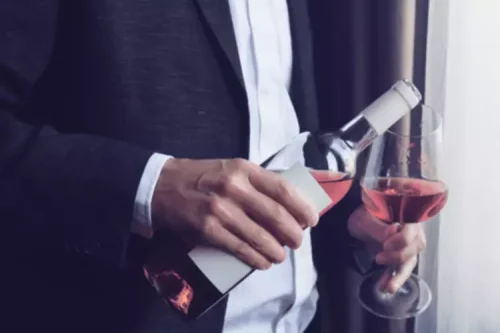Giving Up Alcohol: 90 Days of No Drinking

The main problem is that they often don’t compare people who have never drunk alcohol with those who have. Many studies instead compare people who no longer drink with those that still do. People who give up drinking, especially later in life, often do so because they have health problems, says Stockwell, so moderate drinkers appear healthier in comparison. If someone expects that every Friday night they should be out on the town with friends, but they’re alone on a couch, it may be easier to justify boredom and self-pity, followed by booze. Managing our expectations can relieve boredom as well as the unhealthy compulsions to relieve it. Say, for example, that it’s Friday night and you’re alone with no plans.

Understanding PRP Scalp Treatment
Individuals who are prone to boredom are more likely to abuse drugs and alcohol, according to some research. On the other hand, boredom can push you toward more meaningful tasks, says Elpidorou. When boredom strikes, you might call a friend you haven’t heard from in a while, go for a walk or to the gym, or pick up your guitar and fiddle with that tune you’ve been working on.
Why many studies wrongly claim it’s healthy to drink a little alcohol

The best way to assess the effects of alcohol would be to randomly assign people to drink it or not in childhood and then monitor their health and drinking over the rest of their lives. Since such studies cannot be done, researchers instead have to ask people about their drinking habits and follow them over drinking from boredom much shorter periods of time. What we do—the behaviors we choose to engage in—heavily affect how we feel about ourselves. What this means is that we have personal control and responsibility for reducing boredom in our lives. Drinking as a way to cope with boredom indulges in and perpetuates that passivity.
Avoid alcohol
At first, that caused a lot urges, but towards the end it –like most instances of cravings – faded into the background. This proactive approach will empower you to break the cycle of loneliness, addiction, and more loneliness, ultimately leading to a more fulfilling life in the present moment. Outside of her professional endeavors, Megan finds joy in the company of her partner and pets. She relishes spending time with friends, experimenting with new recipes in the kitchen, and exploring the great outdoors during milder weather. Megan’s therapeutic approach is multifaceted, drawing from narrative, feminist, and existential therapy modalities.
Edible gel prevents and treats alcohol intoxication in mice
The American Psychological Association recommends CBT to root out “faulty or unhelpful ways of thinking” that may be driving unhealthy behaviors. If you do manage to meet your friends, the added drinks from socializing might affect your ability to get home, placing a burden on your friends. The reality is there are other, healthier ways both to celebrate that milestone and deal with the boredom trigger. Hobbies give you goals, and if you especially enjoy them, you’ll be motivated to reach these goals. Without hobbies, it’s more tempting to take the easier route of having a drink. Of course, not everyone has the luxury of constructive options for responding to boredom, Elpidorou points out.
- Catching signs of abuse early also minimizes the risks of adverse health effects and increases the probability of achieving sobriety much more quickly.
- We are quick to change our “state of mind,” which leads to addiction patterns, instead of learning to be with our current state of mind.
- Relationships between boredom proneness, mindfulness, anxiety, depression, and substance use.
- The current pandemic has highlighted how boredom can trigger the misuse of substances, particularly alcohol.
4. Maintain a healthy diet
Boredom eating from time to time can be completely normal and nothing to worry about. However, it may be frustrating for some people and have health implications, including weight gain (1, 2, 3, 4). Reducing alcohol intake may produce withdrawal symptoms such as sweating, shivering, high blood pressure, vomiting, fatigue, etc. Psychological symptoms like anxiety, restlessness, & anger outbursts, or irritability can be seen as an after-effect. A Qualified mental health professional or psychiatrist can help and assist in managing these symptoms. Depending on the stage of recovery, this extra time can be used to manage the life in front of us — kids, cleaning, cooking, better health, finances, errands, and the domestics of daily life.

I encourage anyone in recovery to be open, honest, and willing to do the work. Besides, it is all up to you to be the person you would like to become. If you need support in your journey, our team at Ria Health is always here to help you, and we’re only a call away. Often, it really comes down to being willing to do something that doesn’t entertain you or make you feel good immediately.
Whether it’s during a long meeting, a tedious task, or a lazy afternoon, boredom can have negative effects on our mood or energy levels and leaves us feeling unfulfilled. Tips to change this habit include planning the diet, eating mindfully, and making changes to the environment in which a person eats their food. Therefore, if a person is eating because they are feeling bored or down, doing some exercise may lift their mood and help them avoid eating for the sake of it. Addressing diet, emotions, and behavioral habits are helpful strategies that people can try to reduce snacking out of boredom. Boredom eating in unique situations like this may be nothing to worry about. It’s normal to feel an urge to eat when you’re bored, even on a regular basis.
Losing relationships to the substance can be challenging but anchoring to others in recovery can be the very thing you need to feel worthy of recovery. Specializing in diverse mental health challenges, including depression, addiction, and trauma, Christy embraces a person-centered approach. She tailors interventions to individual needs, drawing from modalities like mindfulness, DBT, CBT, and EMDR. She typically works with people interested in taking a holistic approach to treating their addictions.

Recent Comments